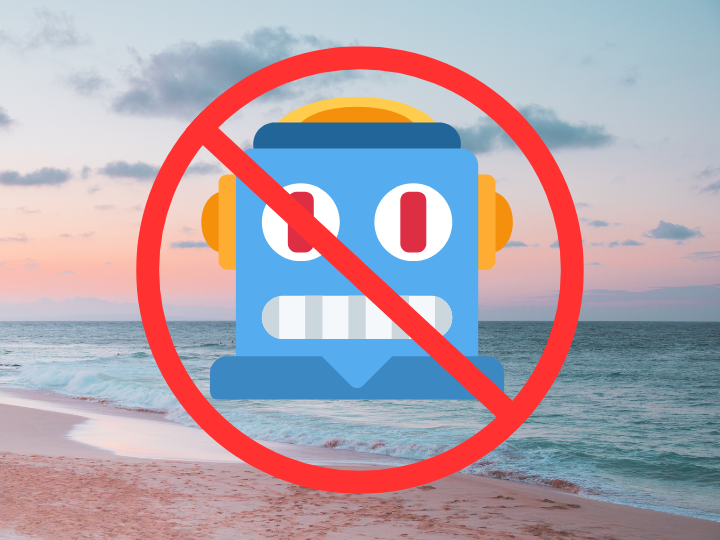If union members can’t stop automation from taking their jobs, what chance do the rest of us have?
Note: the dockworkers’ strike ended just after this column was published, but the issues raised remain relevant—and the full terms of the tentative agreement between labor and management are not yet available.
Perhaps it is ever thus in a news media dominated by corporate interests, but it’s not easy to find coverage of a strike by unionized workers that puts their reasons for taking such a risky action front and center. Instead, headlines and the stories themselves tend to focus on effects—real or imagined—on bosses and consumers.
And, with some notable exceptions, initial coverage of the strike by dockworkers who are members of the International Longshoremen’s Association at ports along the American coast from Houston to Miami to all the way up here to Boston is largely following that unfortunate playbook.
In the Massachusetts press, we’re treated to headlines like “Port strike in Boston has some Massachusetts businesses on edge” and “Dockworkers in Boston go on strike in move that could cause shortages this holiday season.” While media elsewhere features screamers like “Covid PTSD? Amid port strike some consumers are panic-buying goods like toilet paper.”
Most of these stories do have some basic information on the strike, such as: The ILA is a roughly 45,000-member union that hasn’t been on strike since 1977, its members are seeking better wages and benefits to make up for inflation and get what they feel are overdue raises, and the big companies represented by USMX (the United States Maritime Alliance, Ltd.) that the workers are up against claim to have made a great offer to the union right before its strike started early Tuesday morning.
But few news organizations really focus on the most timely and critical demand the ILA is making of USMX. Which is, to quote Wednesday’s union release, “ILA Responds To USMX’s Statement That Distorts the Facts and Misleads the Public:” “… [T]he ILA is steadfastly against any form of automation—full or semi—that replaces jobs or historical work functions. We will not accept the loss of work and livelihood for our members due to automation. Our position is clear: the preservation of jobs and historical work functions is non-negotiable.”
The release’s pointed title makes it quite clear that the union is frustrated not just with its members’ employers, but also with the corporate news media’s lurching from extremely premature concern for the bottom line of companies affected by the strike at any point in the global supply chain to whipping up needless hysteria about a return to pandemic-era shortages—such takes being particularly ludicrous given that affected businesses had plenty of advance warning to stock up on supplies and major shipping companies had already planned to simply anchor goods-laden ships offshore once the strike began.
Which serves to obfuscate the very legitimate concerns of tens of thousands of dockworkers in jobs that remain precarious despite some protection from their union: “USMX also overlooks the fact that two-thirds of our members are constantly on call, with no guaranteed employment if no ships are being worked. Our members qualify for benefits only based on the hours they worked the previous year, making them vulnerable if there’s a downturn in work. Despite this, there is no incentive within the progression system for hard-working members to advance faster. Regardless of their dedication, they must wait six full years to attain the top wage.”
But automation remains the core issue of the strike. Because ILA members know they won’t have any wages or benefits if they’re replaced by robots and chatbots.
Hence, they want the media to cover their situation in its proper light instead of obsessing that the strikers might hurt the bottom line of some businesses (starting with the hugely profitable companies they’re striking against) and causing prepper-types to flip out and buy all the Cheez Whiz they can find at Costco. As if more cargo can’t be redirected to Canadian or Mexican ports, should the strike drag on for more than a couple of weeks.
Meanwhile, the types of people that one can see criticizing the dockworkers on social media—saying that losing generally decent-paying jobs to automation is just the inevitable historical trajectory of technology and they will all get retrained and get jobs repairing the aforementioned robots; so, no harm no foul—clearly aren’t thinking things through.
It’s safe to assume that many of the armchair “experts” making those statements are symbolic workers with steady employment and salaries that put them solidly into the middle or upper-middle class. They have jobs in fields like law, accounting, and software development.
Exactly the kinds of jobs that are facing automation in the years to come. Since, while it’s likely that the current wave of so-called “AI” may be largely marketing hype from Silicon Valley hucksters (trying to gin up an investment feeding frenzy and make big bank before too many people realize their shiny new products are not artificial intelligence at all), the large language and statistical models in question are already capable of performing tasks like drafting contracts, producing annual reports, and writing software to a tolerable standard. And they will only get better over time.
Apparently, it has not yet occurred to such critics that most people in white-collar jobs are not members of labor unions in the US of the 21st century. So they should definitely not be so cavalier about the fates of blue-collar workers like ILA members in the current strike. Or believe that “retraining” people that are screwed out of good jobs by the caprices of the super-rich would actually happen and that everyone who loses a job to a robot will immediately get replacement jobs as robot repair people or whatever, exactly in the location where they have put down roots, with equivalent money and benefits.
Instead, I would encourage all readers who aren’t financially secure—that is, most readers—to do whatever you can to support the striking dockworkers. Not because they’re all the best workers or saints, that’s irrelevant. Or because the ILA is the best or most democratically-run union, it isn’t.
Rather because if those unionized blue-collar workers can’t stop automation from taking their jobs, then what chance do un-unionized white-collar workers—and the vast majority of blue-collar workers who are also un-unionized—have? People so socialized into hapless individualism that it wouldn’t occur to them to unite to demand their bosses give them free donuts every morning, let alone mount a significant campaign for better wages, working conditions, benefits, and job security.
Unionized labor, however weak it has become over the last half century and however imperfect it may be, is our best chance of stopping sociopathic tech billionaires from ripping apart our society with what I can only describe as extremely flawed solutions in search of problems … like thinking it’s better to use automated supply chains (which may or may not be more efficient than current human-driven systems) to eliminate jobs and increase profits instead of figuring out how to use technology to guarantee employment for all in good living-wage jobs with solid benefits.
So, folks should show some solidarity with them in this fight and then consider asking ILA and more militant (and far more democratically-run and historically more successful) unions like the the West Coast’s International Longshore and Warehouse Union to help you organize unions in your workplaces to defend yourselves against the bottom-feeding plutocrats coming for your jobs.
As for my colleagues in the Massachusetts press, what can I say? Jobs in the news industry are already at risk from automation; so please do a better job covering the dockworkers’ strike. Their fate is ultimately our fate.
Apparent Horizon—an award-winning political column—is syndicated by the MassWire news service of the Boston Institute for Nonprofit Journalism.






